
Frederick Charles Copleston was an English Roman Catholic Jesuit priest, philosopher, and historian of philosophy, best known for his influential multi-volume A History of Philosophy (1946–75).

The Pontifical Gregorian University, is a higher education ecclesiastical school located in Rome, Italy.
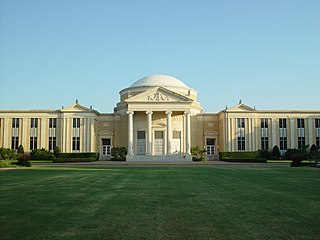
A seminary, school of theology, theological college, or divinity school is an educational institution for educating students in scripture and theology, generally to prepare them for ordination to serve as clergy, in academics, or mostly in Christian ministry.

Heythrop College, University of London, was a constituent college of the University of London between 1971 and 2018, last located in Kensington Square, London. It comprised the university's specialist faculties of philosophy and theology with social sciences, offering undergraduate and postgraduate degree courses and five specialist institutes and centres to promote research.
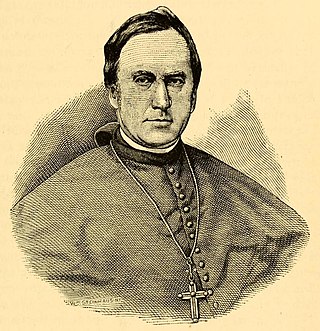
Michael O'Connor, S.J. was an Irish-born prelate of the Roman Catholic Church in the United States and a member of the Society of Jesus. He served twice as bishop of the Diocese of Pittsburgh in Pennsylvania. O'Connor served briefly as bishop of the Diocese of Erie for several months in 1853.
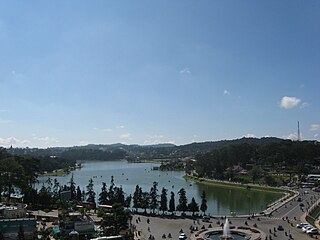
Da Lat or Dalat, is the capital of Lâm Đồng Province and the largest city of the Central Highlands region in Vietnam. The city is located 1,500 m (4,900 ft) above sea level on the Langbian Plateau. Da Lat is one of the most popular tourist destinations in Vietnam.
Francis Alfred Sullivan was an American Catholic theologian and a Jesuit priest, best known for his research in the area of ecclesiology and the magisterium.

Pontifical University of the Holy Cross is a Roman Catholic university under the Curial Congregation for Catholic Education, now entrusted to the Prelature of the Holy Cross and Opus Dei, or more commonly called Opus Dei. It was started in 1984 by Opus Dei, with the aim of offering the universal church an effective instrument for formation and research.
The Pontifical Scots College in Rome is the main seminary for the training of men for the priesthood from the dioceses of the Roman Catholic Church in Scotland. It was established by a bull of Pope Clement VIII on 5 December 1600.
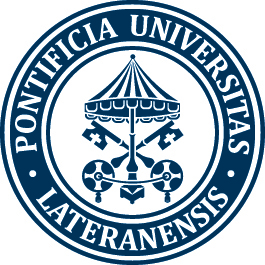
The Pontifical Lateran University, also known as Lateranum, is a pontifical university based in Rome. The university also hosts the central session of the Pontifical John Paul II Institute for Studies on Marriage and Family. The university is known as "The Pope's University". Its Grand Chancellor is the Vicar General to the Holy Father for the Diocese of Rome. As of 2014 the Pontifical Lateran university had students from more than a hundred countries. It is also sometimes also known as the Pontifical University of Apollinaire.
Enrique San Pedro, S.J. was a Cuban-born prelate of the Roman Catholic Church. He served as the fourth bishop of the Diocese of Brownsville in Texas from 1991 until his death in 1994. He previously served as an auxiliary bishop of the Diocese of Galveston-Houston from 1986 to 1991.
The Pontifical Roman Major Seminary is the major seminary of the Diocese of Rome. It is located at the Archbasilica of Saint John Lateran. Since 2017, the rector of the seminary has been Gabriele Faraghini, a priest of the Little Brothers of Jesus Caritas.
The Milltown Institute of Theology and Philosophy was a Jesuit-run institution of higher education and research, located in Dublin, Ireland. It was located in Ranelagh, County Dublin.

The Royal and Conciliar San Carlos Seminary is the archdiocesan seminary of the Roman Catholic Archdiocese of Manila. It was established in the year 1702, by decree of King Philip V of Spain. At present, the institution houses seminarians belonging to various dioceses in Luzon, particularly from the Metro Manila region.

The Newman Institute for Catholic Studies is a university college offering courses in theology, philosophy, and cultural studies. The institute was inspired by the English philosopher, writer and cardinal John Henry Newman (1801–1890), and was founded in 2001. It is located in Uppsala and is run by the Society of Jesus; the current rector is Philip Geister SJ. In 2010, the Newman Institute was accredited by the Swedish Higher Education Authority.

Silvester San is a bishop in Denpasar, Indonesia, since 2008.
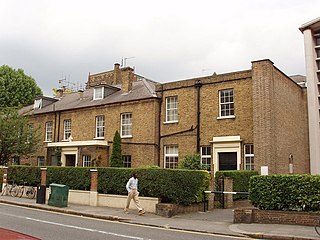
Allen Hall Seminary, often abbreviated to Allen Hall, is the Roman Catholic seminary and theological college of the Province of Westminster at 28 Beaufort Street in Chelsea, London, in the London Borough of Kensington and Chelsea. It is situated on the site of the house that was once occupied by St Thomas More. Though nothing of the house remains, parts of the 16th-century garden wall exist today.
George Soares-Prabhu was an Indian Jesuit priest, exegete and biblical scholar, particularly known for his work in Indian Hermeneutics of the Christian Scriptures.

Francis Pereira S.J. is an Indian Jesuit priest, scripture scholar and Marathi writer. He is professor Emeritus of Jnana Deepa, Institute of Philosophy and Theology, Pune, India. He has contributed to the study of the Bible and especially through his Biblical commentaries in Marathi, the language of Maharashtra, India.
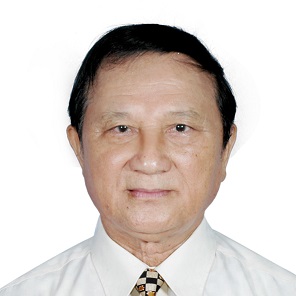
Nguyễn Hồng Giáp is a Vietnamese scholar.












